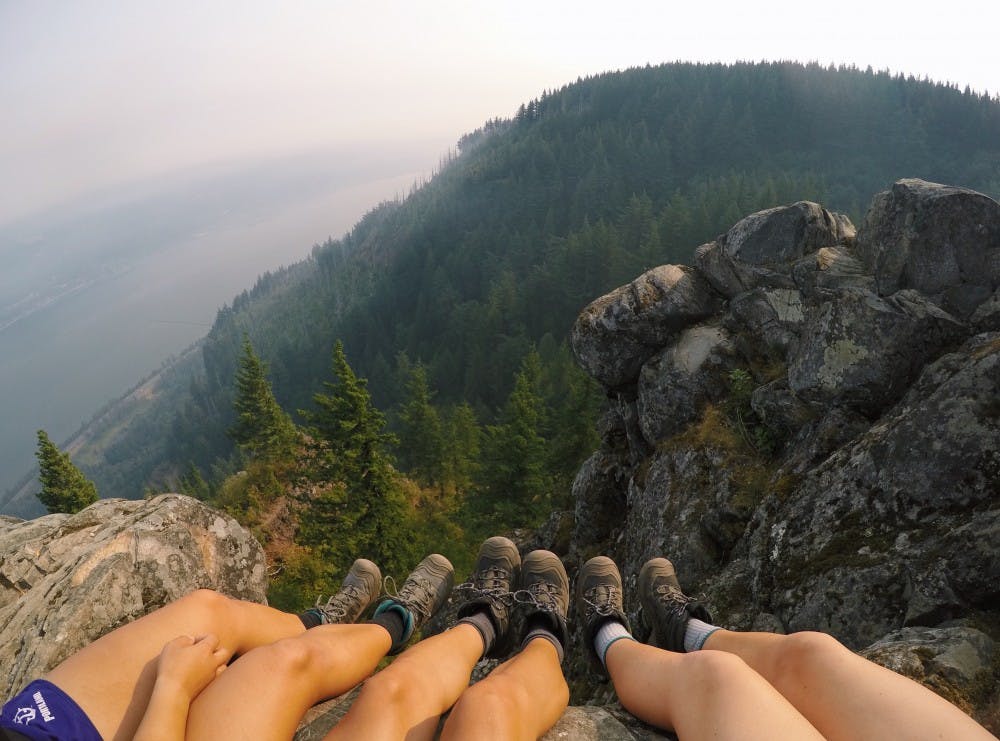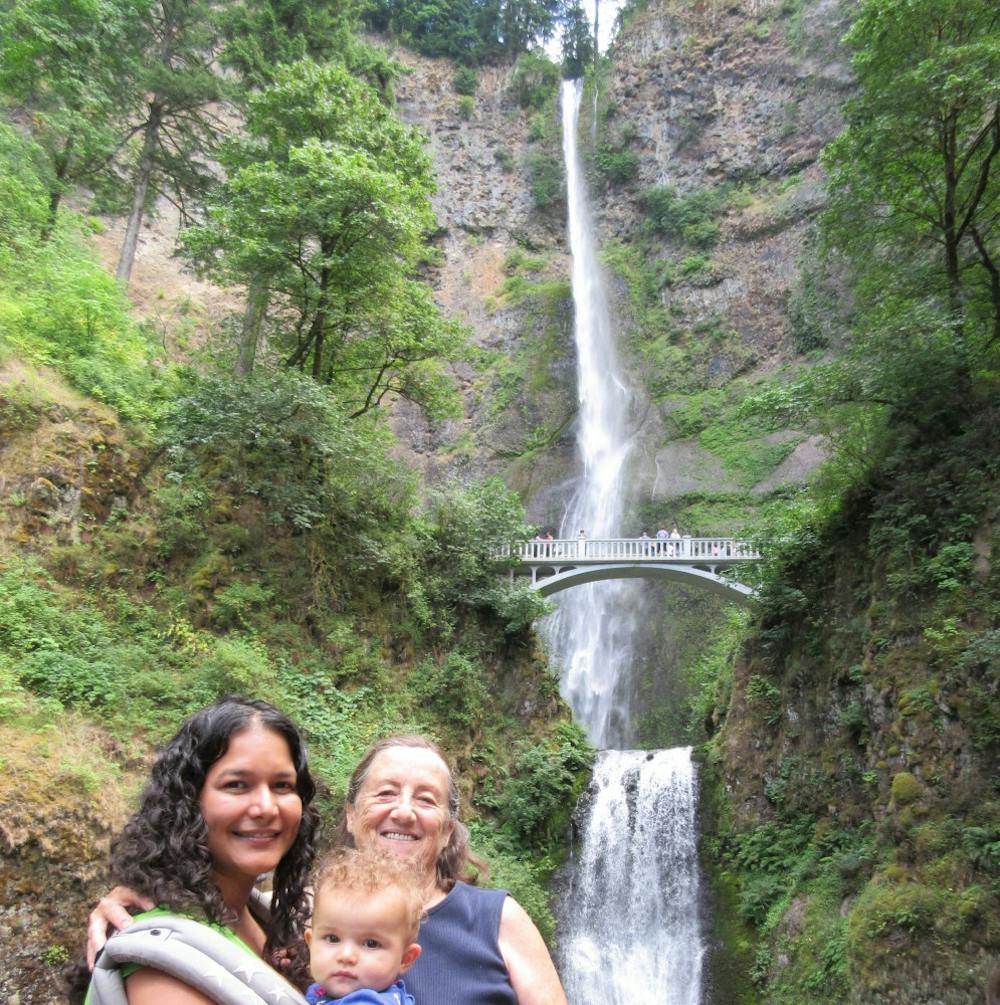On the day the Eagle Creek Fire broke out in the Columbia River Gorge, a group of University of Portland students were hiking on the trail near Punch Bowl Falls. If the Outdoor Pursuits Program (OPP) trip had left any later than planned, Nathan Hingley, manager of OPP said, the students could have been a part of the group evacuated from the area.
The Eagle Creek fire scorched 48,831 acres of the Gorge, threatening one of the Pacific Northwest’s most treasured sights: Multnomah Falls. The natural beauty attracts approximately two million visitors a year, according to the U.S. Forest Service, and is known for the impressive falls and easy hiking trail. Though the fire narrowly missed the famous Multnomah Falls Lodge, the falls have been deemed unsafe and closed for the foreseeable future.
Sophomore Cindy Ong, a Portland native, said she will miss driving through the gorge with her family. To Ong, “it’s more than just a tourist attraction.”

Hiking in the Columbia River Gorge was part of the regular OPP, an on-campus program that offers regular trips, rental gear and excursions. But now, it is unlikely the program will be able to return in the next year due the closure and unsafe conditions. OPP has reevaluated the safety of offered hiking trips. Munra Point, Dry Creek and Horse Tail Falls excursions will no longer be offered.
“Luckily, we did have a few weeks to change things up, but it’s pretty much closed that program area down for the foreseeable future,” said Nathan Hingley, OPP Manager. “I don’t see us going back in there next fall semester just because of the damage that’s been done and association with potential landslides and stuff like that.”
OPP’s trip leaders and assistant trip leaders are given basic training in safety. Before each hike trail conditions are assessed with risk management plans that rate the likelihood of an accident and the severity of the consequences that would accompany it in addition to maps and itineraries.
“When a fire like the Eagle Creek Fire comes through and burns a lot of vegetation that was anchoring the soils and rocks in place that makes it more likely than previous years that this winter there will be some big rock fall incidents,” states Ted Eckmann, a professor in the department of environmental studies.
According to Eckmann, Portland’s approaching winter weather will have even more of a geological impact on the area. When water freezes, its volume expands by nine percent, and the recurrence of freezing and thawing in an area abundant with water, like the falls, creates enough force to break rock.
The closure has been a disappointment to many, but according to Eckmann, keeping the area open would be far too risky. The safety hazards are too significant, he said.
“I would see this as an opportunity to force yourself to take a chance on somewhere you’ve never been before rather than just keep going to the same place,” Eckmann states.









